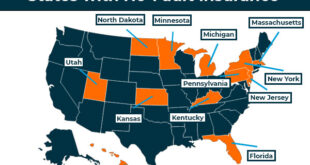Personal Loan Fees: Understanding the Costs and Saving Money When considering a personal loan, one factor many borrowers overlook is the additional fees that can accompany it. Understanding personal loan fees is crucial because these costs can affect your total loan expense and impact the affordability of your loan. In this article, we will break down the types of fees typically associated with personal loans, provide strategies for minimizing these expenses, and answer common questions to help you make informed financial decisions.
Types of Personal Loan Fees to Watch Out For
1. Origination Fee
- Definition: Lenders may charge an origination fee to cover processing costs. This is usually a percentage of the total loan amount, ranging from 1% to 8%.
- How It Affects You: This fee is usually deducted from the loan amount, so if you’re borrowing $10,000 with a 5% origination fee, you’d receive only $9,500.
2. Late Payment Fee
- Definition: Charged if a monthly payment is not made by the due date.
- Amount: Ranges from $25 to $50 or a percentage of the missed payment.
- Tip: Avoid late payment fees by setting up automatic payments or reminders.
3. Prepayment Penalty
- Definition: Some lenders charge this fee if you pay off your loan early, compensating for lost interest revenue.
- How It Affects You: If you plan on repaying your loan ahead of time, check with your lender to avoid this penalty.
4. Application Fee
- Definition: Some lenders charge an application fee just for processing the application, even if the loan isn’t approved.
- Cost: Typically $25 to $50.
- Avoiding It: Many online lenders waive this fee, so consider lenders that don’t charge application fees.
5. Returned Payment Fee
- Definition: This fee is applied if your payment fails due to insufficient funds.
- Amount: Typically ranges from $15 to $40.
- Tip: To avoid this, ensure sufficient funds are available in your bank account before the due date.
6. Annual Fees
- Definition: Some lenders may charge an annual fee for maintaining the loan, similar to credit card annual fees.
- Frequency: Charged annually and can vary significantly.
- Avoiding It: Check for lenders that do not charge an annual fee, especially for shorter-term loans.
How to Minimize Personal Loan Fees
- Shop Around: Compare lenders to find those with minimal or no fees.
- Negotiate Fees: Some lenders may be open to waiving or reducing certain fees, especially if you have a strong credit history.
- Improve Your Credit Score: Lenders may offer lower fees or waive some fees for borrowers with higher credit scores.
- Choose a Lender with Flexible Terms: Look for lenders who do not impose prepayment penalties.
- Read the Fine Print: Always review the loan agreement in detail to understand all potential fees.
- Consider an Online Lender: Many online lenders offer loans with fewer fees compared to traditional banks.
- Set Up Automatic Payments: Many lenders offer fee waivers or discounts if you set up automatic payments.
- Avoid Missed Payments: Set reminders to ensure timely payments and avoid late fees.
- Check for Discounts: Some lenders provide loyalty discounts if you are a returning customer.
- Limit Loan Amount: Only borrow what you need to minimize fees based on loan size.
FAQs about Personal Loan Fees
- What are the typical fees for a personal loan?
- Fees can vary but commonly include origination, late payment, prepayment penalties, and application fees.
- Can I negotiate personal loan fees?
- Yes, some lenders may negotiate or waive fees, especially if you have a strong credit score.
- Do all lenders charge an origination fee?
- No, not all lenders charge an origination fee. It’s essential to ask about this when comparing loans.
- Is there a way to avoid a prepayment penalty?
- Choose a lender that doesn’t impose this penalty, or discuss options for early repayment.
- How does my credit score affect personal loan fees?
- A higher credit score often qualifies you for lower fees or eliminates certain fees altogether.
- Are online lenders generally cheaper than traditional banks?
- Yes, many online lenders offer lower fees due to reduced overhead costs.
- Can I avoid late payment fees?
- Setting up automatic payments can help you avoid late fees.
- Is there any way to avoid returned payment fees?
- Ensure your account has sufficient funds before each payment is due.
- Do personal loan fees differ by loan amount?
- Yes, fees like origination fees are often a percentage of the loan amount.
- What should I check in the fine print?
- Look for all fees, especially hidden charges that aren’t always highlighted by the lender.
Conclusion
Understanding personal loan fees is essential to managing your finances and ensuring that you’re getting the most value from your loan. These fees, while common, can be minimized or even avoided with careful planning, diligent research, and by choosing a lender whose terms align with your financial goals.
By staying informed and proactive, you can make better financial decisions that protect you from unnecessary fees and keep your personal loan affordable over its lifetime. Remember, an informed borrower is an empowered borrower.
 Gerbang Finance
Gerbang Finance

